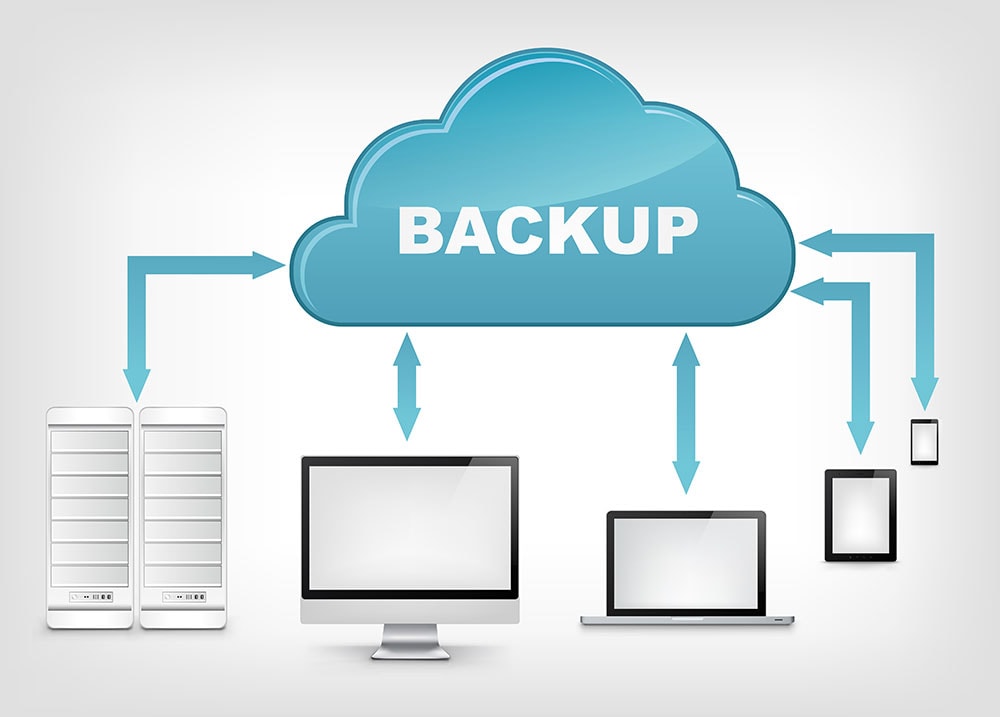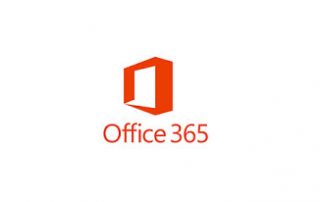Cloud Backup & File Sharing
Do You Have An IT Project We Can Help With?
Cloud Backup & File Sharing
Cloud Backup Tips for Entrepreneurs
Startups are increasingly moving to the cloud for work processes. Almost all business owners need cloud-based applications for data storage, backup, file sharing, and editing. All of these applications are accessible online because the data is stored in the cloud.
When your company moves to the cloud, it means you no longer buy physical program in a shop. Instead, your computer downloads the latest version from the Internet and continually keeps it current when new updates are released. Below you’ll learn what Cloud Backup is, why you need one, and its benefits.


What Is Cloud Backup?
Cloud backup also refers to as online data backup, is a procedure for backing up files and data that involves transferring a copy over to a remote server. A third-party service provider hosts the server, which charges the customer a specific fee based on size, bandwidth, or the number of users.
A cloud server backup is a necessity for many organizations today because they store most or all of their business-critical data and applications on cloud servers. Companies opt to back up to the cloud to keep data and files readily available in the event of system failure, outage, or natural disaster.
Why You Need To Backup Your Data
Losing all of your data isn’t a fun experience, but it’s something you can avoid with the right backup in place. The primary purpose of the backup is to create a copy of data that can be retrieved in the event of a data failure such as software or hardware failure, data corruption, or a human-caused event, such as a malicious attack (malware or virus), or accidental deletion of data. Here are some four unfortunate situations that could happen when you don’t back up your site:
- You lose all the work done
It takes a lot of time and energy to complete work. This effort only multiplies with the years you’ve been working. Could you imagine losing years of work overnight? You’ll have to start all the work from the beginning again or hire someone to do it all If you don’t have any backups to restore from disaster.
- Loss of revenue during recovery
When you lose your data, some existing revenue may stop until you can completely restore them. Depending on the amount of data you’ve lost, this could be a long time—especially if you’re a small business. Time is lost during the recovery process, no new work can be initiated, and this further delays your time to market and impacts your ROI.
- Loss of time
Imagine the frustration of trying to do years of work again. Some data have been running for years with hundreds to thousands of documents, so if you haven’t done a backup and you lose those data, then you’ll have to start creating all again. It might take you years to get back to your starting point.
- Limiting endpoints
Enterprise data is managed across different devices such as laptops, tablets, smartphones, etc. facilitating remote working culture and thus increasing the number of endpoints that store data. Therefore, if you don’t maintain backup protection for endpoint devices in the central repository, then you may lose your data.


What Are The Benefits Of Cloud Backup?
The benefits of cloud backup are abundant. Here are some benefits you’ll realize from using a cloud backup service:
- Data security
The primary reason for data backup is to save vital files in the event of a hard drive failure, or system crash occurs. You can also encrypt the backup file for added security.
- Easy recovery
Another benefit of using a cloud backup service is being able to recover your lost files after data loss. A regular backup can get all your files back without much effort. With a quick recovery, it’ll be like you ever experience any damage in the first place.
- Saving time
If you have a data loss, you will have to work to fix it. While you are working on data recovery, you are not working on the core of your business. With cloud backup, you save resources that you would otherwise need to spend on restoring the lost data.
- Peace of mind
Regular backups give you a sense of data security. There is a backup ready to go to restart a company’s archive in case cybercrime, system crashes, or disasters occur.
- Prevent downtime
Cloud backups will prevent downtime or keep downtime to a minimum by saving time wasted on recovery and by preserving your data. You also don’t have to bother about the maintenance, or physical protection of your data storage devices as well. All of this is taken care of by the provider.
What Kind Of Data Should Be Backup In The Cloud?
You should back up files that are important to you. Some examples are word processing documents, databases (for financial data), spreadsheets, customer data, and personal files such as music files, pictures, emails, and many more.
For best results, backup copies should be made regularly to minimize the amount of data loss between backups. The more time that passes between backup copies, the more data loss when recovering.
As a rule of thumb, do not backup system folders or programs. Make sure you save operating system discs, program installation discs, and registration information in a safe place so that you can reinstall those programs if necessary.


How Can You Get Started?
Cloud backup solution has been in existence for years. We cannot deny that a cloud backup system is one of the easiest forms of storing data and is never too late to start saving essential company data on the cloud.
Hopefully, you have a better understanding of why cloud backups are so crucial for your business before the unfortunate incident occurs. However, if you’re looking for a backup solution but don’t know where to start, then Precision IT Consulting is a no brainer. We can help you take the headache off your back.
More Cloud & Hosting Services
Our Current Partners
GET IN TOUCH
"*" indicates required fields
Precision IT Consulting
206-8388 128st Surrey, BC V3W 4G2
604-359-5284
IT Support Service Locations:
• Vancouver • Langley • Surrey • Richmond • Burnaby • Coquitlam • Maple Ridge • Abbotsford













